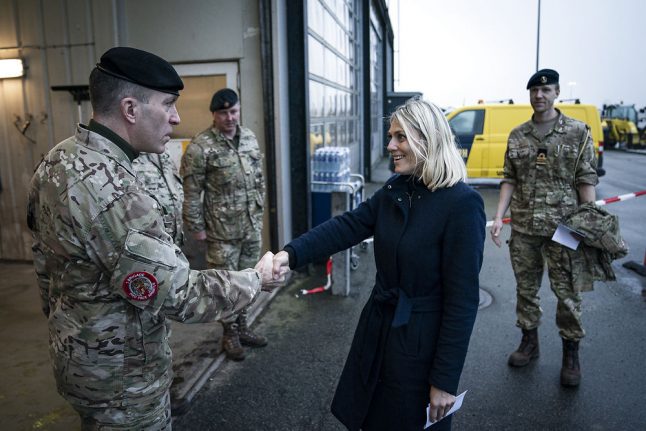Iraq was historically a strong partner for Germany, and in the 1980s bilateral trade reached €4 billion ($6.4 billion) a year.
But by last year, Germany only exported goods worth a total of €319 million to the war-ravaged country.
German companies have always been eager to work with a country that has ample oil reserves and where reconstruction programmes offer major contracts for makers of machine tools and industrial facilities, two German specialities.
German Chancellor Angela Merkel, who was to receive Maliki on Tuesday, has expressed strong interest in developing economic and business ties and German companies are chomping at the bit.
Eckart von Unger, director of the Africa and Middle East department at the German industrial federation BDI, told the business daily Handelsblatt: “In the near future, we hope Iraq will again hit four billion euros, like in the good old days.”
For now however, while many German companies have expressed interest in working in Iraq, few have taken the next steps.
Wintershall, a unit of the chemical giant BASF, is one of the few to actively seek contracts, in its case a license for oil drilling.
A BDI spokesman acknowledged that “we cannot say how many German companies are currently active in Iraq.”
Insecurity, corruption and poor infrastructure are obstacles to many.
“The risks to Germans working there is still very high,” said Axel Nitschke, head of the German chamber of commerce DIHK’s external trade department, in comments to the Neue Passauer Presse newspaper.
But both countries are working on improving the situation.
In June, a German-Iraqi economic commission was resucitated and met here for the first time since 1987, under the oversight of Glos and Iraqi Industry Minister Fawzi al-Hariri.
Six weeks later, Glos flew to Iraq along with a sizeable German business delegation.
He was the first member of the government to make the trip since 2003.
On Tuesday, the Arab-German chamber of commerce and industry Ghorfa is organizing the dinner with Maliki and “around 100 business leaders, particularly heads of small- and medium-sized enterprises,” the group said.
In Iraq as well, interest in bigger contacts with Germany is keen.
Baghdad has pressed Berlin to abandon its official warning against travel in the still volatile Middle Eastern nation.
“It handicaps economic development, the German government should allow German companies to decide for themselves if they want to go to Iraq,” Hariri said last month during a visit to the German capital.
“In the end, it only results in Germans losing contracts, while Iraq, where German products have a good reputation, buys machines from China, Korea or eastern Europe,” he added.
Eckhart von Klaeden, foreign affairs spokesman for the conservative Christian Democratic Union (CDU) group, said German firms should begin getting back to Iraq step-by-step.
“We need to begin by going where it is relatively safe,” such as in Kurdish-controlled areas of northern Iraq.
“As more regions become prosperous, they will set an example for the most dangerous ones and a virtuous circle will take over,” he forecast.


 Please whitelist us to continue reading.
Please whitelist us to continue reading.